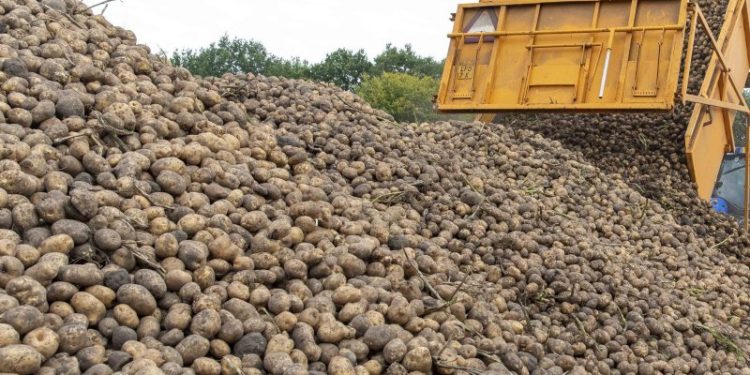In 2022, the Dutch Food and Commodity Authority (NVWA) identified eight cases of warts caused by the fungus Synchytrium endobioticum in potato cultivation.
This concerns eight agricultural plots of seven different potato growers in the northeast of the Netherlands, NVWA reports today. Inspectors from the NAK and NVWA encountered symptoms of verrucous disease. This is a large number of finds for the Netherlands.
Checks are made annually to determine if verrucous disease occurs in Dutch potato production. If a find is found, then action is taken. In infected areas, the NVWA imposes a ban on the cultivation of potatoes and reproductive material for a period of at least 20 years to eradicate the fungus.
In 2020, the NVWA diagnosed a wart disease at three sites in the municipality of Stadskanaal. The cause of these infections turned out to be a new pathotype for the Netherlands, namely physio 38. In 2021, symptoms of warts were found in 4 sites, two of which were in the municipality of Westerwolde with fysio 38.
Intensive sampling
To get a better idea of the possible presence of pathotype 38, the NVWA conducted a survey in 2022 in areas where infections were found in 2020 and 2021. Nearly all of the 90 inspections in the area were carried out within a 10 km radius around these contaminated sites. The NAK also randomly took 350 samples throughout the starch production area to study brown and ring rot, and therefore warts.
Inspections in the northeast of the Netherlands resulted in the discovery of eight new contaminated sites. Two in the municipality of Westerwolde, two in the municipality of Stadskanaal, two in the municipality of Midden-Groningen, one in the municipality of Pekela and one in the municipality of Emmen. The breeds that have been found to have infections are Altus, Avarna, Festien, Saprodi, Seresta and Supporter.
Based on the resistance profiles of these breeds, the tentative expectation is that most of the finds made in 2022 were due to physio 38 infections. However, to establish this with certainty, the NVWA is pathotyping by testing each find. It is expected that the exact data on physiotherapists will become known in June 2023. Based on these results, a more complete picture of the spread of the new physiotherapy can be obtained.
Fifty varieties explored
The sector, NVWA and research institutes are working on an Action Plan to bring fysio 38 under control. It is important that potato varieties with a resistance rating of 9 or 10 are available. Fifty potato varieties were tested for resistance to pathotype (physio) 38 in 2022. The results can be found on the NVWA website. Starting this year, the new breeding material can also be tested for resistance to physio 38.






